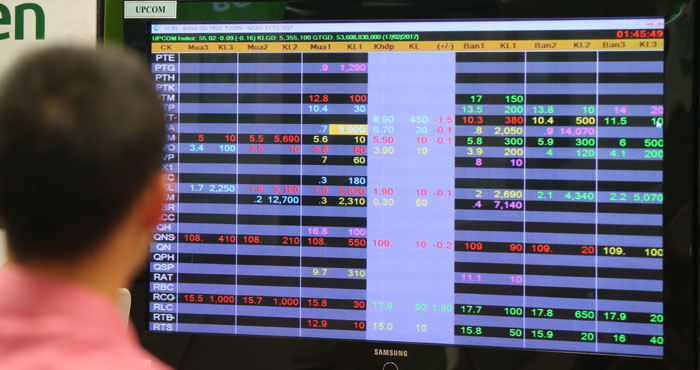Vietnam to launch secondary market for corporate bonds this year
To address the overheated local corporate bond market, the MoF has proposed revising existing laws to differentiate between public offering and private placement for corporate bonds in terms of target buyers.
Vietnam is set to launch a secondary market for corporate bonds this year, a move to further develop the corporate bond market and create another capital supply channel for the economy.
| Vietnam is set to launch a secondary market for corporate bonds this year. Photo: Cong Hung |
Deputy Director of the Ministry of Finance (MoF)’s Department of Banking and Financial Institutions Nguyen Hoang Duong unveiled the information at a workshop promulgating Decree No.153/2020/ND-CP dated December 31, 2020 prescribing private placement and privately placed corporate bonds in domestic market and offering of corporate bonds in the international market.
In 2020, the volume of corporate bonds issued in the domestic market rose by 29% year-on-year for a combined value of VND430 trillion (US$18.67 billion), in which bonds transaction via private placement account for 93.4% of total amount, up 30.4% year-on-year.
To address the overheated local corporate bond market, Mr. Duong said the MoF has proposed revising existing laws to differentiate between public offering and private placement for corporate bonds in terms of target buyers.
As such, only professional securities investors are allowed to engage in the private placement of corporate bonds, while public offering of bonds are open to all types of investors, he noted.
“The new regulations would help protect individual investors from risks of purchasing corporate bonds via private placement,” said Mr. Duong, adding private placement of corporate bonds under the new regulation would no longer require approval from stock market authorities.
“Professional securities investors have to self-evaluate and be responsible for their decisions,” Mr. Duong suggested.
Mr. Duong added the Hanoi Stock Exchange is tasked with developing a model of trading market that reflects the actual situation of Vietnam’s stock market.
Senior expert of the World Bank Ketut Ariadi Kusuma said an expansion of professional securities investors are key to ensure a dynamic and strong secondary market for corporate bonds.
Mr. Kusuma said diversified visions and strategies between investors will help the market grow, adding in case of Vietnam, the majority of professional securities investors are banks, which has partly limited the development of the secondary market.
A report from the ADB noted the combined bonds outstanding of the top 30 issuers in the corporate market in the first nine months of 2020 amounted to VND189.4 trillion (US$8.21 billion), or 77.1% of the total debt stock in the corporate segment.
Nearly half of the outstanding bonds, totaling VND93.7 trillion (US$4.06 billion), were from the banking sector, followed by property firms with VND47.5 trillion (US$2.06 billion), or 25.1% of the total.












